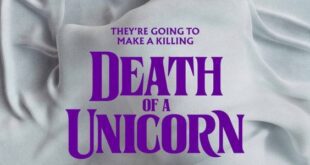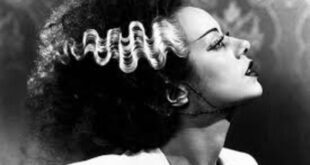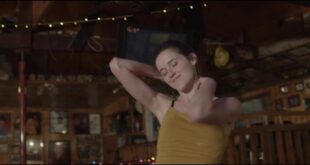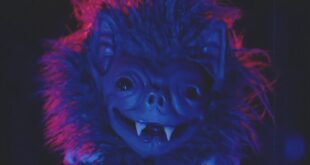Everyone is afraid of something. How do you get over that fear? Drag it out in the open and expose it to the light. If you look closely, you’ll see that there are chinks in that monster’s armor, and you’re not that afraid anymore. That’s what horror movies do for us.
But when it comes to the church, many people believe that horror movies are not worthy entertainment. As a matter of fact, most of them outright condemn the genre as evil. But why? Is it because the stories are too scary? There are some pretty terrifying stories in The Bible, like when the demon-possessed man nearly kills all the people who were trying to help him, or when Jeremiah is thrown into a muddy hole in the ground and left to starve. Is it because horror movies are disgusting? The Bible boasts quite a few nasty tales: Samson ate honey from a bee’s nest that was stuck inside the rotting dead body of a lion. Oh, and don’t forget when Judas Iscariot died in the field he bought with his 30 pieces of silver, his guts spilled out around his ankles. Could it be because they’re afraid of the supernatural elements? Jesus Himself saw the ghosts of Moses and Elijah. And after His resurrection, a whole slew of dead saints got up out of their graves and walked to town.
But I digress. In Tyler Smith’s new documentary, Valley Of The Shadow: The Spiritual Value Of Horror, the filmmaker brings to light why the horror genre should not be branded as evil to those of faith. He gives reasons why we all should feel comfortable with horror and reminds us that, to fight the darkness—any darkness—in life, we need to remember that we can count on the Light.
Valley Of The Shadow: The Spiritual Value Of Horror is hosted by beloved genre icon Bill Oberst, Jr. (our most recent interview), a man all too happy to tell the world about his love of the macabre and The Cross. The script for the documentary is written by Reed Lackey (40: The Temptation of Christ 2020, The Victim 2011) and Tyler Smith, who also directed. Smith is known for his previous doc, Reel Redemption (2020), where he brings to light “the contentious relationship between the Church and Hollywood.” So there’s already a background in faithfulness here. I was pretty anxious to hear how they connected it to horror.
What Works
The documentary opens with Bill talking about his own personal love for the scared and the sacred, leaving his own future in God’s hands when deciding which psycho maniac to play next. He tells us that we all have fear, and that horror lets us confront our fears in a safe way.
There are four aspects of horror movies that we can also associate with real life: The Unstoppable, The Inevitable, The Abominable, and The Unknowable.
The Unstoppable

There are things in life that we cannot control, and their effects can be deadly. Weather, health, time, human hubris… once they start, there’s no way to stop them. Horror movies have taken these things and multiplied them tenfold. Aliens land on earth and take over the planet while we watch, dumbfounded as to what to do. A decision to go uninformed into nuclear energy and ignoring the consequences leads to nature’s reaction in an unknowable way. Emotionless AI, extinct animals brought back to the present, a being formed by man and not God… all created by us, and all ready to get revenge. Even the idea of tiny bugs coming in a swarm feels impossible to beat back. Human beings are soft, and if something really wants to kill us, we don’t have much hope to stop it.
The Inevitable

Despite thinking we are the top of the food chain, every human being will die eventually, and everything they did will be lost in time. And while we’re getting ready to shuffle off this mortal coil, so many things can happen to our bodies to remind us that we are not above pain and death. We get life-altering diseases, body breakdown, unpredictable psychosis, and the weakness to become a slave to things like drugs, alcohol, and even doctor-prescribed medicine. We can’t control these things, even as we try our hardest to prepare for their results. A werewolf can’t stop his full moon transition, and a person can’t will a disease away.
As Bill says in Valley of the Shadow: The Spiritual Value of Horror:
“No matter how hard we fight or how fast we run, death comes for us all.”
The Abominable

Strangely enough, horror movies show us that we ourselves are our own worst enemy. The most heinous forms of torture come from our own species. People who push aside their responsibilities as a member of the human race feel no guilt at all about doing things that benefit them and hurt the people around them. They play God because they think they were meant to, and despite an initial success, they always find themselves in the middle of a battle with their own choices. Serial killers, cult leaders, and home invaders take their desires and wedge them into the average human’s every day life. These monsters tear the life-giving blood and flesh from our bodies and leave us in a pit of helplessness, and we didn’t even do anything to deserve it.
The Unknowable

No one really knows what happens when we die. We don’t know what goes on behind the veil. Ghosts, demons, forces that we can’t comprehend, they run by their own rules, and we are not privy to them. Why do some spirits stay behind as ghosts? What do they want? Anyone who’s ever heard footsteps across the floor as they sit alone in the house wonders what it could be, and what it wants to do to the person who hears them. Sometimes, the evil energy created by man’s own darkness can leave a lasting effect on the land around them. What about the power of witches, men and women who still practice today, and where it comes from?
About all of these things, Valley of the Shadow: The Spiritual Value of Horror has the answers. The dialogue is engaging and factual. I found myself nodding along to a lot of what was said. Bill speaks for the entire 2+ hours of runtime. Yet his voice never wavers, and he stays passionate and invested throughout the entire documentary.
“… horror movies have the ability to preach their message without ever seeming, well, preachy.”
A large array of movies are mentioned, making it entertaining for the horror nerd in me. But how the narration ties them together with a faith in God is what really drew me in. The transitions are smooth, and the scene-to-scene editing is tight. We’re reminded that our fears come from our separation from God and unwillingness to help one another. The real way to combat evil is to unite against it.
“Sometimes, the shadows are darkest because the light is brightest.”
Because we’re human, evil draws out our humanity and lack of satisfaction while the good reminds us to look toward God for help. No matter what we’re going through—a terrible boss, a lethal diagnosis, a psychotic maniac out for blood—it doesn’t compare to what Jesus suffered on The Cross.
“Horror stories can prepare us to face the fears within ourselves and the world around us and of the world to come.”
We watch horror to get a very clear view of our earthly problems.
“It is when we become more acutely aware of what can happen in this world that we can fully appreciate Jesus’ sacrifice… Because of his resurrection, we ourselves can have faith that we will be brought out of the shadowy valley.”

What Doesn’t Work
I love Valley Of the Shadow: The Spiritual Value of Horror and all it stands for. However, there are a couple of things that I found a bit irksome. Bill Oberst, Jr.’s articulate delivery can be a bit too precise and matter-of-fact, which feels a bit unnatural. The doc also meanders a bit and could use a tighter editing cord. I also wish that the ending argument was presented at the beginning of Valley Of The Shadow: The Spiritual Value of Horror, followed by the reasons why horror can be connected to faithfulness. This would help someone stuck on one side of the fence to really delve into why horror is an important aspect in Christianity. Most people struggling with how to proceed wouldn’t watch until the end to find out how it all ties together.
Final Thoughts
Valley of the Shadow: The Spiritual Value of Horror is a fantastic documentary for those of us who struggle with loving both horror and Jesus Christ. For years, society has told us that these two things cannot coexist in one person, that you have to love either one or the other. But Smith’s doc shows us that, not only is it okay to feel a passion for both, it may even deepen our faith and make those horrible horror movie ideas all the more terrifying. If you find yourself questioning why you believe what you believe and why certain horror tropes strike you with goosebumps, then do yourself a favor and check out Valley of the Shadow: The Spiritual Value of Horror.
 PopHorror Let's Get Scared
PopHorror Let's Get Scared



